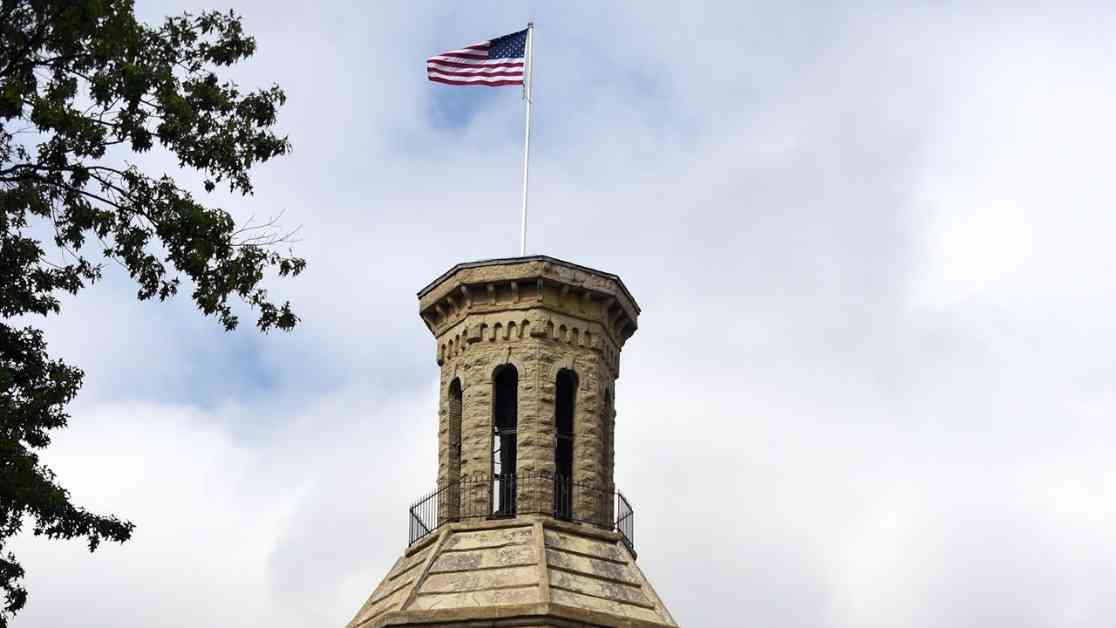In early February, Wheaton College, a prominent evangelical institution near Chicago, sparked a massive controversy with a seemingly innocent social media post congratulating alumnus Russell Vought on his new role as director of the U.S. Office of Management and Budget. Vought, a key figure in Donald Trump’s administration, faced backlash from critics who condemned his political affiliations. The incident snowballed into a broader conflict that highlighted the deep divisions within the evangelical community, with prominent figures like Eric Metaxas and Franklin Graham weighing in on the debate.
Wheaton College has long prided itself on its intellectually rigorous and mainstream-friendly brand of evangelicalism. However, its attempt to navigate the increasingly polarized political landscape has put the institution at the center of a culture war defined by the Trump era. The college’s decision to remove the congratulatory post for Vought ignited a fierce debate among alumni, students, and observers, reflecting the broader tensions within the evangelical community.
Alumni Voices Speak Out
Following the removal of the post, a group of fifteen alumni penned a letter expressing their concerns about Vought’s policy positions, which they deemed incompatible with the teachings of Jesus Christ and the mission of Wheaton College. Citing issues such as immigration enforcement, LGBTQ rights, and abortion policies, the alumni called into question the college’s endorsement of Vought as a role model for its graduates. Tyler Streckert, one of the alumni involved in drafting the letter, emphasized the importance of upholding Christian values in the face of political differences.
On the other side of the debate, conservative alumni like Eric Teetsel defended Vought against what they perceived as unfair treatment by the college. Teetsel highlighted the lack of recognition and support for Vought within the Wheaton community, despite his public defense of the institution in the past. The controversy surrounding Vought’s post underscored the broader ideological rift between progressive and conservative factions within the evangelical world.
The Challenge of Maintaining Identity
For Wheaton College, the Vought incident represents a broader struggle to balance its theological conservatism with its desire for mainstream acceptance. As the political landscape becomes increasingly polarized, the college faces mounting pressure to define its stance on contentious issues without alienating members of its community. Mark Noll, a historian of evangelicalism, noted the challenges of navigating the complex theological, cultural, and political landscapes that define contemporary evangelical identity.
The rift within the evangelical community is not new, with historical examples of ideological clashes dating back to the abolitionist and pro-slavery movements. However, Wheaton College’s position as a symbol of evangelical higher education places it at the forefront of the battle for the soul of American evangelicalism. As the institution grapples with its role in a rapidly changing world, the tension between maintaining tradition and adapting to the present moment continues to shape its identity and reputation.
In conclusion, the conflict over Russell Vought’s social media post at Wheaton College underscores the broader challenges facing evangelical institutions in an era of political and cultural upheaval. As the college navigates the complex terrain of contemporary evangelical identity, it must reconcile its commitment to faith with the demands of a divided society. The debate surrounding Vought serves as a microcosm of the larger struggle within the evangelical community, highlighting the competing visions of Christianity and politics that define the movement in the modern age.












